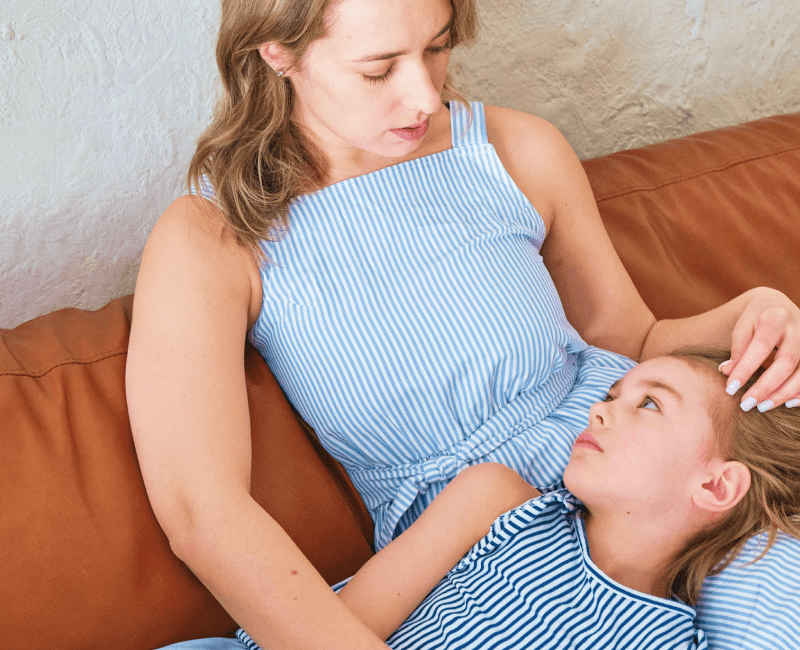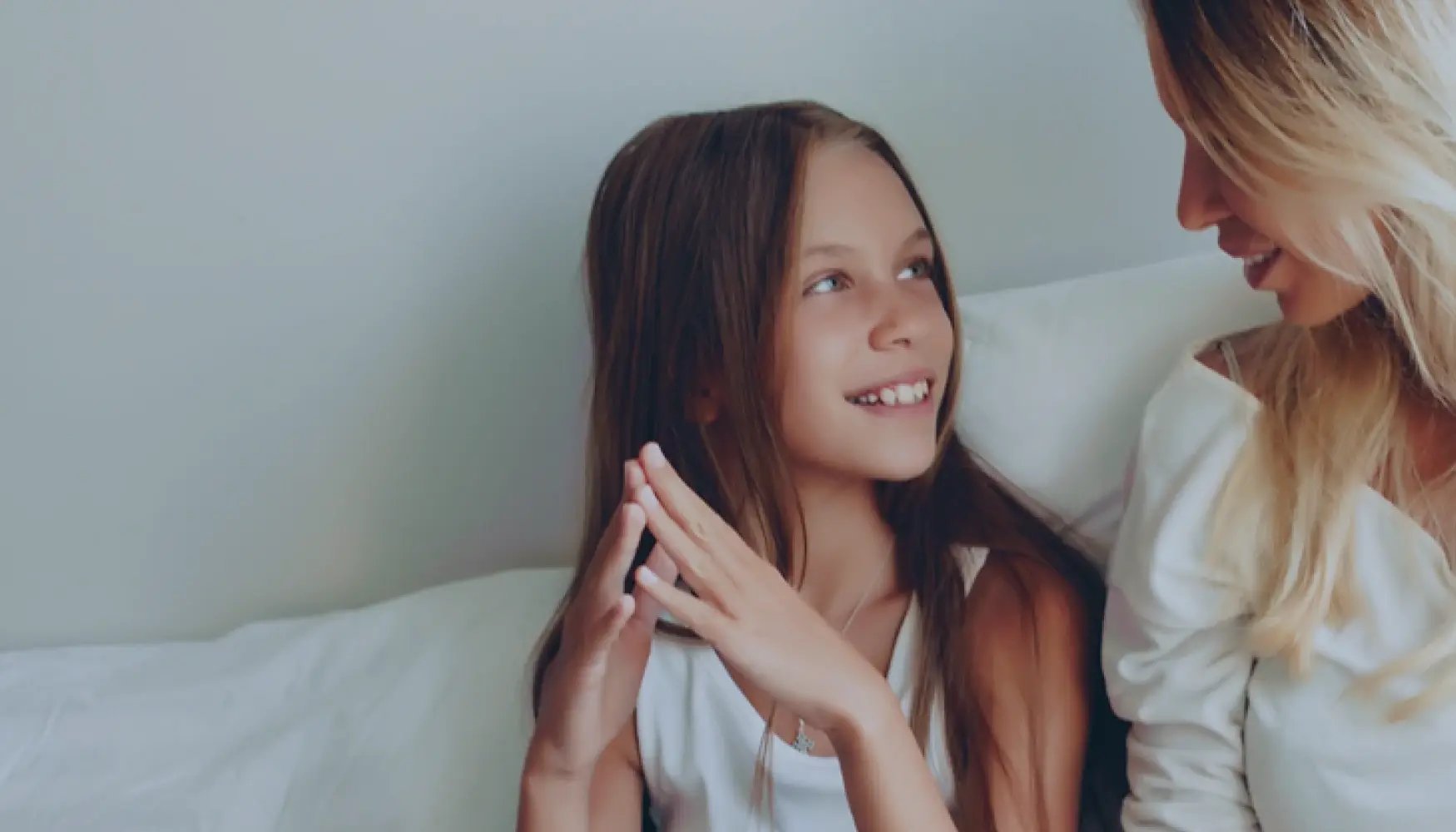How can I support the counselling process?
If your child has started seeing a counsellor, then you’re already doing a great job of showing them that you take their mental health seriously. By giving them the space to talk to a professional they’ll be processing a lot of tricky thoughts and feelings, and you may already be seeing a change for the better.
But what can you do to support the counselling process? With sessions being confidential, it can be hard to know how to help or if you’re doing and saying the right things. So here’s our dos and don’ts of supporting your child as they have counselling, and as they prepare for life once the sessions have finished.
Do - Give them space
If you’re worried about your child’s mental health, you’ll be keen to check-in regularly on how they’re feeling. While it’s important to keep a close eye on your child, it’s also important that they don’t feel smothered. Particularly when it comes to their counselling.
If they’ve agreed to regular counselling sessions this is a great sign. It means they’re motivated to get help and they’re prepared to work on improving their mental health, so this is a good time to give them some breathing space and avoid grilling them about how they’re feeling. Their counsellor will let you know if there’s been any changes that you need to worry about. The best thing you can do is give them a bit of normality at home, and let them know you’re there if they need you.
Don’t - Try to set the counselling agenda
If your child isn’t taking the ‘big’ issues to their counsellor, it can be really frustrating. How can the counsellor help them if they’re not telling them everything that’s happening? If this is the case, it can be really tempting to tell them they have to talk about it in the next session, or to tell the counsellor that they need to work on it with them.
If parents try to dictate what’s covered in counselling sessions, it can take the power away from the child, and make them less likely to engage. Perhaps they’re building up the courage to speak to the counsellor, or perhaps it genuinely doesn’t feel like a big issue to them. Maybe they’re actually tackling the big issues in ways that feel safe. Instead of talking about their parents’s divorce, maybe they’re sharing their upset about two school friends who are always arguing. If this is the case it’s likely the counsellor has picked up on what they’re really saying and is using it as a gentler way to process their feelings.
Do - Practice ‘active listening’
Quite often listening could be more accurately described as ‘waiting for our turn to speak’. If we’re arguing, we’re formulating our response. If someone’s sharing a problem, we’re thinking of how we’re going to help them to fix it. If your child does open up about their feelings then it’s essential that we engage our ‘active listening’ skills. This means giving them our full focus, without thinking about work or scrolling through our phones.
Active listening is about really hearing what someone is telling us and showing that we’ve understood. We don’t need to fix someone’s problem, and if we try to, this can often put them off. Your child wants to know that they’re not alone, and you’ve heard what they’re telling you.
Don’t - Over-react to what they tell you
If your child is opening up to you, it’s essential that you keep your cool, no matter what they tell you. We were all young once and probably kept lots of things from our own parents, through fear that we’d get in trouble. If you want your child to continue opening up, then you need to react calmly to what they tell you.
Maybe they’ll tell you they’ve been taking part in risky behaviour, self-harming or having suicidal thoughts. This can feel alarming, but if they’re telling you these things it’s a really good sign. It means they’ve recognised it’s an issue and they’d like some help. It also shows that they trust you, and it’s important you reward that trust. Avoid grounding or punishing them where possible, or putting any restrictions on the things they’d normally be doing. If you want more advice on this, you could ask their counsellor for a quick chat.
Do - Talk about your own mental health
When adults talk about their mental health with children, it can really empower them to see that there’s life beyond the way they’re feeling now. However, it’s important that this is handled carefully. Avoid sharing things that you’re struggling with now, as they could feel more burdened and may begin worrying about your mental health as well as their own.
Sharing a difficult time from the past is usually much safer, perhaps from when you were their age. Let them know how low you felt at that time, and that you felt like you’d never feel any better. This doesn’t need to be an inspirational ‘look at me now’ anecdote of how you‘ve gone on to do amazing things. Simply let them know that you’ve had dark times too, and you know how hard it can be.
Don't - Dismiss their feelings
As adults, we’ve gained a lot of wisdom, and it can be tempting to share this with our children. This might include dismissing their worries as trivial. Telling them that exams aren’t important, that they’ll find new friends, or that heartbreak is something we all go through may be true, but it’s probably not what they need to hear at that moment.
Give your child as much time as they need to talk about what’s worrying them, and validate their feelings. This means letting them know it’s perfectly understandable to feel upset and you’re here to support them through it. It helps if you can really empathise with them, so close your eyes and ‘step back’ into yourself at their age, remembering just how strong those emotions could feel.
Do - Create regular opportunities to talk
If you’ve reached a stage where your child is opening up regularly then this is great news. When a child is talking to their loved ones about their feelings, this is a promising sign that the counselling can soon come to an end.
It’s important to create regular opportunities for them to keep talking, but we don’t want this to feel awkward or forced. Long car journeys or taking the dog for a walk are great opportunities for these conversations to come up naturally, and being side by side means it feels much less awkward having ‘deep and meaningful’ conversations, as there’s less need for eye contact.
Don’t - Break their confidence
Finally, it’s important that you show respect to your child by honouring their privacy. In the early years of parenthood we become used to sharing every detail of our child’s life. Stories about their tantrums, potty problems or adorable misunderstandings often become a way of bonding with other new parents, and it can be difficult to notice when this is no longer appropriate.
If your child is struggling with their mental health, then it’s their choice who knows about it. You may need to seek support from a trusted friend about how to support them, but talking about it with people you bump into in the playground or supermarket is not respecting your child’s privacy. Before you talk to someone about your child’s wellbeing, take a breath and ask yourself ‘is this appropriate?’
Being a parent can be overwhelming. Just as we think we’re nailing it, our child reaches a new developmental stage and we’re thrown into cluelessness again. By organising counselling for your child, you’re doing a wonderful thing - you’re validating their feelings and letting them know you value their wellbeing. This will make a huge difference to their self-esteem and sense of belonging in the world. And by letting them know that you’re here for them whenever they need you and whatever they tell you, you’re doing an amazing job of supporting the counselling process.
- General mental health (32)
- Counselling (25)
- Anxiety (11)
- Generalised anxiety (10)
- Depression (7)
- Anger (4)
- Relationship Issues (4)
- Self-Harm (4)
- Suicidal Thoughts (4)
- Autism (3)
- Classroom Behaviour (3)
- Eating Disorders (3)
- Eating Issues (3)
- Loss (3)
- Phobias (3)
- Safeguarding (3)
- School Issues (3)
- LGBTQ+ (2)
- SEMH (2)
- SENCOs (2)
- Secondary & Sixth Form Schools (2)
- AAC (1)
- Absenteeism (1)
- Autism Support (1)
- Looked After/Adopted (1)
- OCD (1)
- Primary Schools (1)
- Social Communication (1)
- Trauma (1)
You may also like
These related stories

Does My Child Have Separation Anxiety?

3 ways to start a conversation with your child about mental health
